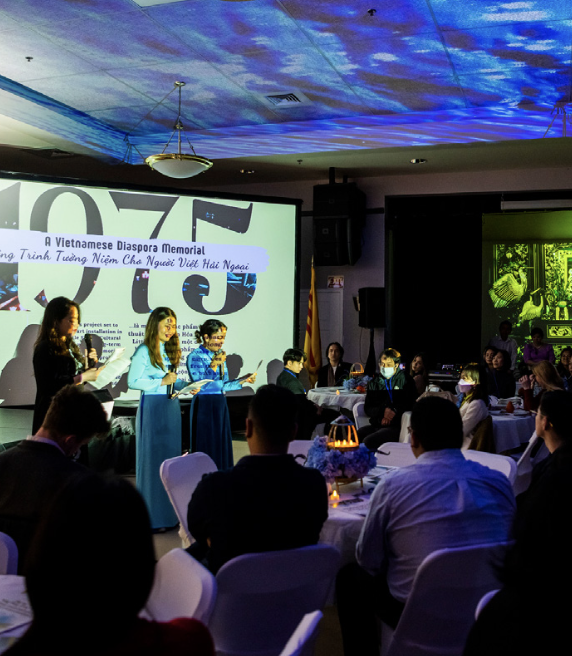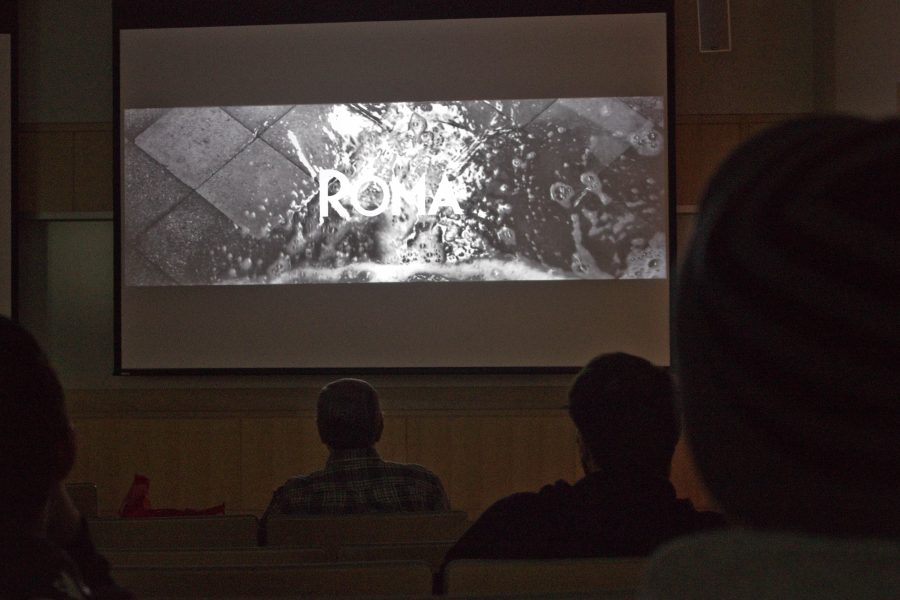The University of Massachusetts Boston’s Cinema Studies Department held a viewing of “Roma,” a 2018 drama film written and directed by Alfonso Cuarón. Set in 1970 and 1971, Roma, which is a semi-autobiographical take on Cuarón’s upbringing, followed the life of a live-in, indigenous housekeeper of a middle-class family. The event began with a speech that emphasized Cuarón’s numerous cinema accomplishments. Coffee and cookies were provided to participants to enjoy the movie.
Following the viewing of the powerful movie, members of the Cinema Studies department led a discussion where they prompted the audience to provide their insights to the group at large. Many compliments were given to the structure of the film; one individual commented on “the exceptional topography” of the film. Another noted that the film had, “so many layers to it which I appreciated as a viewer.” Everything, from the “remarkable sound design,” to the “observer nature” of the film, was mentioned.
Conversation then moved on to the current controversy surrounding the Oscar nomination of the film; Roma was nominated for the Best Picture award. Regarding the controversy, one person noted that, “the controversial response is probably an elitist and racist reaction.” The coordinator then suggested that the controversy surrounding the film may be due “to the agreement with Netflix” the film has, implying that the success of Roma shows that “studios are no longer the powerhouse.”
Next, the synopsis of the film and the unique protagonist were talked about. “There are millions like Cleo,” one viewer noted, “and so it’s important that an indigenous woman’s story get told.” The protagonist “made the film extremely universal even though, at first glance, it seems local, because this is so many people’s story, and the issues covered impact people around the world.”
Others criticized the fact that a non-indigenous man told the story of Cleo, prompting debate. In response to this critique, on person noted, “[Cleo’s] story is a hit because of him.” Even though a large majority of the people agreed that it as problematic for the director not to be indigenous, the general consensus was agreeing that “he uplifted the story.” The film was also found to be a stark reality to others; one woman noted, “the invisibility of the indigenous people in Mexico was represented by Cleo, where her language doesn’t transcend the intimate space she’s created with another indigenous character.” Another woman stated, “the film is very representative of what happens in Mexico where we live side by side with indigenous but we never care to learn about them.”
The black-and-white color of the film was also discussed, with one person surmising, “I wonder if the black and white is a tribute to mid-century Mexican films,” since a long shot in the film involved the characters viewing one. Others asked questions only the creators of the film can answer, asking, “the question I have about the film is if its critical of the director’s childhood even though it is a love letter to his nanny,” or “how much is faithful to the director’s own upbringing?”
The event was a success, in part because of the discussion it prompted. When asked about their overall opinion of the event, a viewer answered, “The film was really powerful, emotionally draining—I’d even call it a masterpiece. I think the Cinema Studies Department should put on more film screenings but the discussion should be more prepared where the coordinators bring more questions to debate. I would call it a success overall though, since everyone seemed engaged and it was a good film.”



















































